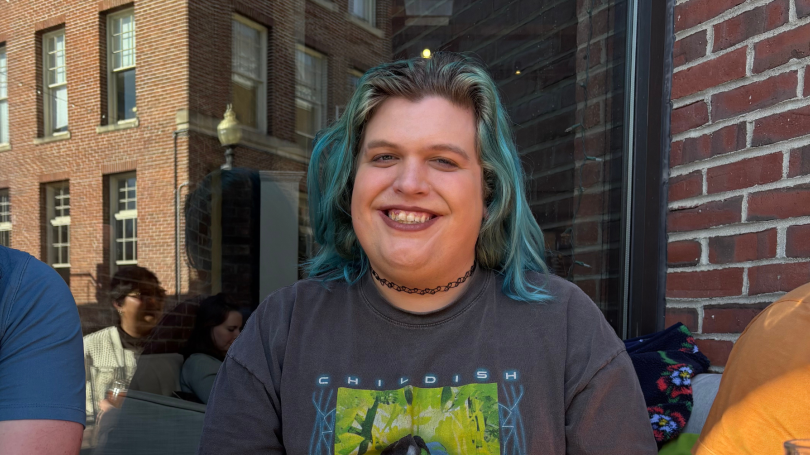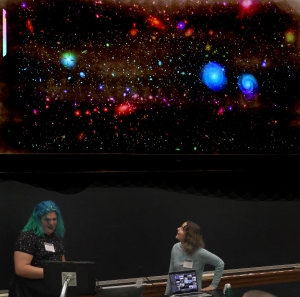

The Physics and Astronomy Department congratulates graduate student Guinevere Herron on her recent National Science Foundation Fellowship award. Guinevere has been awarded three years of funding from the National Science Foundation's Graduate Research Fellowship Program. The program only awarded 2,300 graduate students across the country this year, placing Guinevere into an exemplary group of researchers. The purpose of the NSF Graduate Research Fellowship Program is 'to help ensure the quality, vitality, and strength of the scientific and engineering workforce of the United States'. Guinevere is a student whose curiosity not only includes her own research field, but also how to effectively share knowledge within the larger astronomy and scientific community.
As part of her research, and NSF proposal, Guinevere plans to train a machine learning algorithm to identify some of the faintest galaxies in the universe (often referred to as low-surface brightness galaxies, or LSBGs). This algorithm will be designed to find LSBGs in the Vera C. Rubin Observatory's Legacy Survey of Space and Time (Rubin LSST), which will image nearly the entire visible sky every 3-4 days over 10 years. LSBGs are the most numerous galaxies in the universe, but we know very little about them due to their faint nature.

Guinevere excitedly notes that "A crucial aspect of this project is the ability for the public to participate in the classification of the most unique LSBGs that our algorithm will not be able to adequately detect in the form of a citizen science project that will be hosted on the Zooniverse platform!"
Guinevere is dedicated to democratizing research, and this quality is one of many that likely stood out to the NSF panel. Earlier this year, Guinevere was also selected as a Rubin Data Science Fellow and invited to a specialized series of workshops on Rubin survey data . The goal is to get researchers around the world ready for Rubin Observatory's LSST launch. While the first images have come back from Rubin LSST, the first data sets will be available in June of 2026. Because Rubin LSST is one of the largest surveys ever conducted, the amount and types of data recorded will be a welcome challenge for astronomers to interpret.
Interested in statistical methods used for large astronomical surveys, Guinevere was particularly focused on the most recent workshop on Bayesian inference. Bayesian inference is a statistical technique that can efficiently make quantitative assessments on models with small sample sizes. Guinevere was eager to learn how to efficiently use Bayesian inference on her LSBG models. After learning the fundamentals, Guinevere worked in close collaboration with other attendees to write her own algorithms. She noted that the conference "had a cool culture of democratizing research - not just open access data, but giving everyone the tools to use the open access data."
One of Guinevere's next goals is to lead a series of workshops at Dartmouth to share the knowledge she gained from the Rubin Data Science Workshops with Dartmouth students and researchers. The Physics and Astronomy Department looks forward to continuing to support Guinevere's thoughtful contributions to the scientific community.